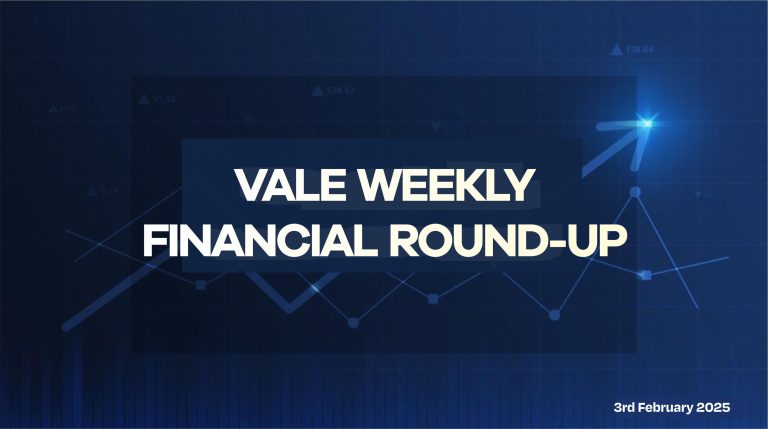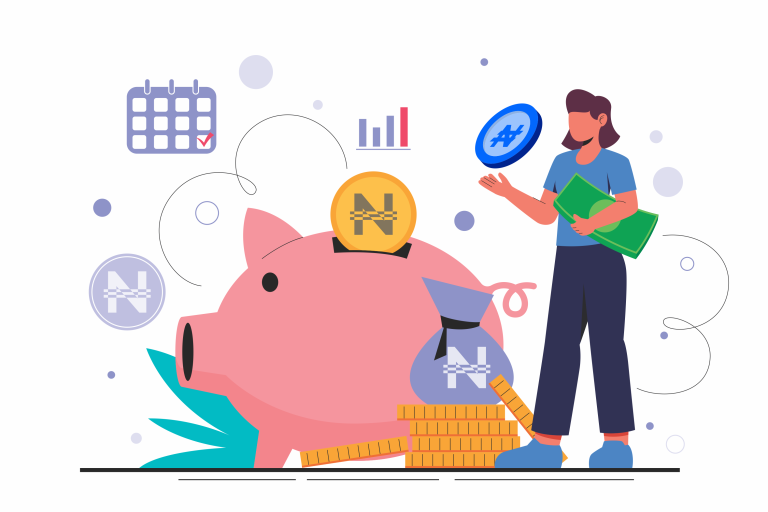The Spending Trap: When It Feels Like Money Just Disappears
We live in a world where spending is easy and effortless. Everything is one click away, and convenience is always calling. At first, it feels like you’re just living, treating yourself here and there. Nothing too serious.
But over time, a pattern begins to emerge: money comes in, but it never really stays long. And most times, it’s not because you haven’t earned enough to sustain you, but because you’re not quite sure where it’s really going.
That’s where frugal living comes in.
Frugality Isn’t Suffering
Let’s clear something up: frugal living doesn’t mean living like you’re suffering. Yes, it might mean cutting back on certain things you enjoy or ignoring a few tempting wants. And sometimes, it may feel like you’re doing the most. But that’s part of the journey to being wise with your money. When you stick with it, you’ll see it’s not as hard or as joyless as it first appears.
Spending with Intention, Not Impulse
Frugality isn’t about saying no to everything; it’s about saying yes to what truly counts.
Sometimes, it’s skipping that stop at the food joint because you’ve already got something good at home. Other times, it’s choosing to buy in bulk instead of shopping every weekend. It could be as simple as tracking your expenses with a notebook or app just to understand your money flow. And many times, it’s resisting the urge to buy something just because it’s trending.
Know Your Priorities
It helps to start by identifying your priorities. What matters most to you right now: transportation fare, house rent, groceries, or other essentials? That’s where your money should go first. When you set your priorities straight, it becomes easier to tell the difference between a want and a need. You’ll start asking:
“Do I actually need this, or do I just feel like buying it?” That awareness alone can shift your entire money mindset.
The Discomfort is Part of the Process
Let’s be real; it’s not always easy. Especially if you’ve never had to consciously track or plan your spending before.
If you’re used to spending freely, frugal living might feel uncomfortable and unfamiliar. You’ll miss the ease. You’ll catch yourself explaining why you’re not ordering food or going out this weekend. Some days, you might want to abandon the whole thing.
But that discomfort? It’s a sign of growth. You’re building a new habit and change often feels awkward at the start. Stick with it, it gets better.
Frugal Living = Freedom
In the end, frugal living isn’t about lack, it’s about freedom.
It’s about having enough for what truly matters and breaking free from cycles of overspending and regret. Every smart decision you make is like planting a seed. You might not see the results immediately, but in time, they’ll show.
So, start small. Take it one conscious choice at a time. You may not be living in luxury, but you’ll be living with clarity, and that’s a kind of soft life too.
NOW TO THE NEWS
Naira’s Parallel Market Rate Hits N1,565/$ Amid Rising Dollar Strengths
The Nigerian Currency experienced volatility in the unofficial market as demand surged and the U.S. dollar strengthened, pushing the exchange rate to N1,565/$ at the parallel market by the end of July 2025. This marks a growing gap between the official and parallel market rates, now at a N30/$ spread. The volatility reflects heightened speculation, travel-related demand, and the persistent pressure on Nigeria’s foreign exchange reserves.
Meanwhile, data from the Central Bank of Nigeria (CBN) showed that the official exchange rate remained relatively stable, closing July at N1,533.5/$, a slight 0.25% depreciation when compared to N1,529.71/$ it closed at in June. The naira had briefly gained ground mid-month, reaching a four-month high of N1,518/$ on July 14, reflecting improved market confidence and the effect of CBN’s stabilization efforts. These gains followed months of reforms and policy incentives that encouraged foreign investor participation in the Nigerian Foreign Exchange Market (NFEM).
Looking ahead, analysts have mixed projections. While United Capital Research predicts the naira could end the year between N1,490/$ and N1,520/$ with further positive sentiment, Renaissance Capital warns of a potential 26% devaluation based on the currency’s historical real effective exchange rate. Nonetheless, the naira’s performance in the first seven months of 2025 reflects a degree of resilience due to ongoing reforms by the Nigerian Apex Bank.
IMF Upgrades Nigeria’s Economic Growth Forecast to 3.4% for 2025
The International Monetary Fund (IMF) has upgraded its forecast for Nigeria’s economic growth to 3.4% in 2025, an increase of 0.4 percentage points from its previous April forecast of 3.0%.
The IMF also raised Nigeria’s 2026 growth forecast to 3.2%, up 0.5 percentage points from 2.7%. These revisions were announced in the IMF’s July 2025 World Economic Outlook (WEO) report, which also raised the global growth forecast to 3.0% for 2025 and 3.1% for 2026.
The outlook for Sub-Saharan Africa has similarly improved, with the IMF projecting growth of 4.0% in 2025 and 4.3% in 2026, slightly higher than earlier projections. The IMF noted that growth in the region is expected to remain stable in 2025 before picking up modestly in 2026. These revisions reflect generally improved global and regional economic conditions.
Commenting on Nigeria’s revised forecast, Tunde Abidoye, Head of Equity Research at FBNQuest Merchant Bank, said the IMF’s growth outlook aligns with in-house estimates based on Nigeria Bureau of Statistics data. He attributed the upward revision to stronger oil production and a resilient services sector but cautioned that the modest growth rate still signals limited progress toward addressing the country’s poverty challenges.
Bank Account Linked with BVN reach 66.2 million in July 2025 – NIBSS
The Nigeria Inter-Bank Settlement System (NIBSS) reported that by the end of July 2025, 66.2 million Nigerian bank accounts were linked to the Bank Verification Number (BVN), up from 64.8 million in January and 63.5 million in December 2024. This increase reflects 2.7 million new BVN enrolments in the first seven months of 2025.
The BVN provides a unique identity to bank customers, enhancing security and preventing unauthorized access, supported by the Central Bank of Nigeria’s directive to freeze accounts without BVN and National Identification Number (NIN) since April 2024.
While the BVN database continues to grow, Nigeria had 320 million active bank accounts as of March 2025, with a notable gap explained by individuals and businesses holding multiple accounts linked to a single BVN. Between January and March 2025, 8.4 million new or reactivated accounts were recorded, up from 311.6 million at the end of 2024.
The recent launch of the Non-Resident Bank Verification Number (NRBVN) platform in May 2025 aims to expand BVN coverage to Nigerians living abroad. The NRBVN allows diaspora Nigerians to enroll remotely, open domiciliary accounts in multiple currencies, and remit funds securely with biometric verification and compliance with international standards. The enrolment carries a nominal $50 processing fee, significantly lower than the previous $200 cost, making it easier and more affordable for Nigerians overseas to access banking services.
T-bills and Bond Payment Pushes Nigeria’s Debt Costs Up 164%
Nigeria’s domestic debt servicing costs surged by 164% year-on-year in the first quarter of 2025, reaching N2.6 trillion, according to the Debt Management Office (DMO). This marks a 65% rise from the previous quarter and is primarily driven by soaring interest payments on Treasury Bills and Federal Government bonds. Treasury Bills alone more than doubled to N961 billion, accounting for 36.8% of total domestic debt service, while interest payments on FGN bonds reached over N1.4 trillion, making up 54% of the total. FX-denominated domestic bonds also contributed nearly N68 billion in interest payments.
FBNQuest Merchant Bank noted this increase reflects a seasonal pattern, where debt obligations typically peak in Q1 due to front-loaded issuances. However, the broader trend also highlights the deepening fiscal stress Nigeria faces, stemming from persistent revenue shortfalls. The bank warned that with public debt climbing is now at N149.39 trillion following a N27.72 trillion increase over the past year. Interest payments will continue to weigh heavily on government finances and threaten fiscal sustainability.
While the government has enacted four major tax reform bills aimed at boosting revenue and reducing borrowing, their impact is expected to be delayed, with implementation beginning in 2026. Analysts project that these reforms could raise tax-to-GDP from 10% to 18%, improving long-term fiscal health.
However, in the short term, Nigeria remains vulnerable to debt-related pressures, particularly as a weak naira continues to inflate external debt obligations.


